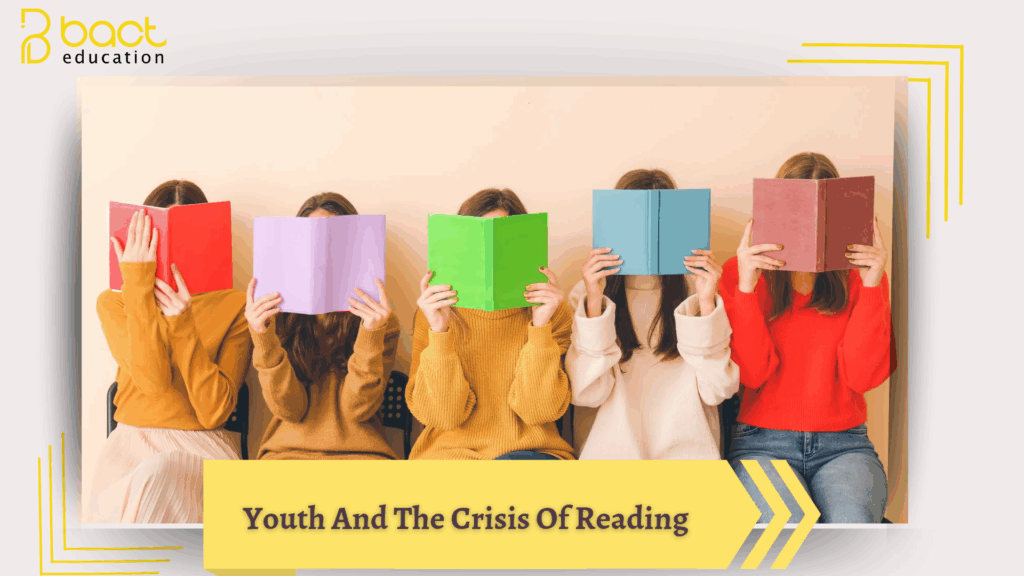## **Introduction**
In the digital age, reading habits among young people have significantly declined. Despite the vast availability of books and online resources, many youths today prefer quick, easily digestible content over deep, reflective reading. This shift has raised concerns about the intellectual and cognitive development of future generations. This article explores the reasons behind the reading crisis among youth and suggests possible solutions.
## **Causes of the Decline in Reading**
### **1. Digital Distractions**
The rise of smartphones, social media, and streaming platforms has drastically reduced the time young people spend reading. Short-form videos, memes, and instant messaging provide quick entertainment, making books seem less appealing.
### **2. Educational Systems**
Many schools focus on exam-oriented learning rather than fostering a love for reading. Students often see books as academic obligations rather than sources of enjoyment or knowledge.
### **3. Lack of Role Models**
With fewer adults demonstrating consistent reading habits, young people have fewer inspirations to engage with books. Parents and teachers who do not prioritize reading indirectly discourage the habit.
### **4. Perceived Difficulty and Boredom**
Some youths find reading challenging or uninteresting, especially if they have not been exposed to engaging books that match their interests.
## **Consequences of the Reading Crisis**
### **1. Poor Critical Thinking**
Reading enhances analytical skills, vocabulary, and comprehension. Without regular reading, young people may struggle with complex ideas and logical reasoning.
### **2. Reduced Attention Span**
Constant exposure to fast-paced digital content shortens attention spans, making it harder for youth to focus on long-form texts.
### **3. Weaker Language Skills**
Limited reading leads to poorer writing and communication abilities, affecting academic and professional success.
## **Solutions to Encourage Reading Among Youth**
### **1. Promoting Digital Reading**
E-books and audiobooks can make reading more accessible and appealing to tech-savvy youth. Apps like Kindle, Audible, and Wattpad offer engaging formats.
### **2. Incorporating Fun and Relevant Content**
Schools and parents should introduce books that align with young people’s interests, such as fantasy, sci-fi, or self-improvement genres.
### **3. Creating Reading Communities**
Book clubs, online forums, and reading challenges can make reading a social and enjoyable activity.
### **4. Encouraging Parental Involvement**
Parents should read with their children from an early age and set an example by reading themselves.
## **Conclusion**
The decline in reading among youth is a serious issue with long-term consequences. However, by making reading more engaging, accessible, and socially rewarding, we can inspire a new generation of readers. Encouraging young people to rediscover the joy of books will not only enhance their knowledge but also strengthen their cognitive and emotional development.

